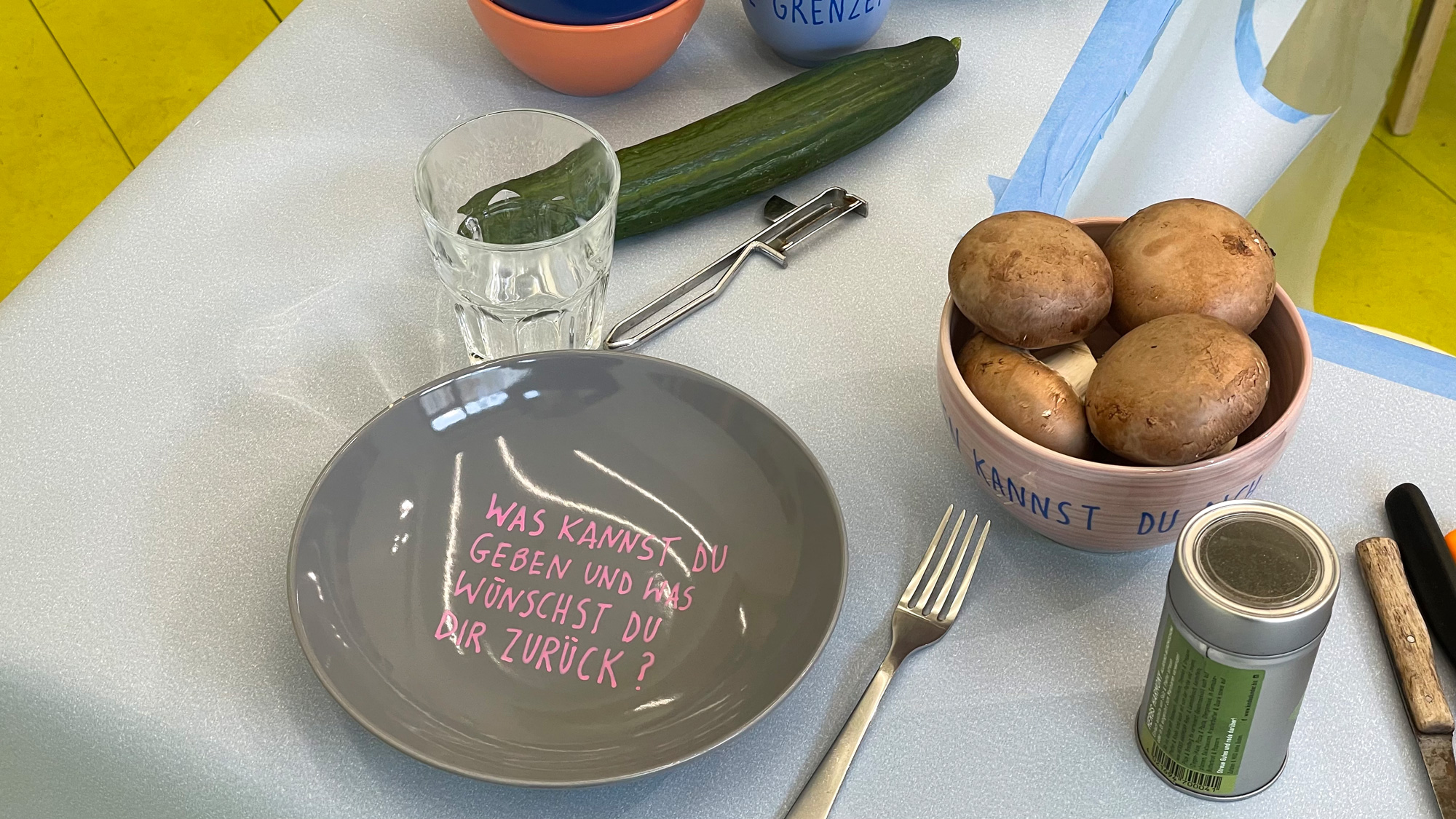Lisa Baumgarten
Critical design mediation – Kritische Designvermittlung
⤻ Design ⤻ Research/Writing ⤻ Education/Workshops ⤻ Curation



Diskriminierungssensibles und -kritisches Lehren und Lernen im Design – ein Vermittlungsformat für (Kunst-)hochschulen
Impulsvortrag und Workshop für Lehrende, Mitarbeitende und Studierende von Mio Kojima und Lisa Baumgartenvon Lehrenden für Lehrende liegt dabei der Fokus auf diskriminierungssensiblen Ansätzen, die parallel zu strukturellen Veränderungen (bspw. durch Diversitätsrichtlinien) in die Lehre integriert werden können. Von der Selbstpositionierung, der Seminarvorbereitung, dem Miteinander im Lehr-/Lernraum bis hin zu Seminarinhalten werden Herangehensweisen geteilt, die auf die individuellen Bedürfnisse und Lebensrealitäten von Lehrenden und Studierenden eingehen. Wir schöpfen dabei aus unserer langjährigen Lehrerfahrung und bewährten Konzepten aus der diskriminierungskritischen Bildungsarbeit.
Dabei sprechen wir u.a. über Fragen wie:
Welche Präsentationsformen gibt es, damit alle Studierenden angstfrei über ihre Projekte sprechen können?
Wie können wir nicht-deutschsprachigen Studierenden eine bessere Teilnahme ermöglichen?
Wie können wir unweigerlich auftretende Diskriminierungen anerkennen, adressieren und bearbeiten?
Der Vortrag ist ein Einblick in Themen und Ansätze des Folgeworkshops. diskutiert diskriminierungskritische Handlungsfelder in der Lehre und gibt Raum, um häufig auftretende Unsicherheiten und eigene Grenzen gemeinsam zu reflektieren. Um auf die Bedürfnisse der Gruppe eingehen zu können, dürfen gerne Fragen und Wunschthemen vorab kommuniziert werden, sodass diese – falls möglich – in den Workshop aufgenommen werden können. Eine Teilnahme aus allgemeinem Interesse/ohne konkrete Fragestellung ist genauso möglich.
Ihr seid Studierende, Lehrende oder Mitarbeitende an (Kunst-)Hochschulen und möchtet diskriminierungskritisch und -sensibel Lehren und Lernen? Dann schreibt uns gerne an info[at]diskrit-design.de
EN
What is discrimination, how does it affect individuals and society as a whole, and how can we teach and learn in a discrimination-sensitive way?
As an impulse from teachers for teachers, this lecture focuses on discrimination-sensitive approaches that can be integrated into teaching in parallel with structural changes (e.g., through diversity guidelines). Drawing from scholarships on anti-discriminatory educational work and our own teaching experience, we share approaches that address teachers’ and students’ individual positions and needs—from self-reflecting privileges and questioning the design canon to anti-ableist seminar preparation and non-violent interaction.
The lecture gives insights into the themes and approaches of the follow-up workshop. The workshop discusses areas of action in design teaching that are critical of discrimination and provides space to reflect together on frequently occurring uncertainties and one's own limitations. In order to be able to respond to the needs of the group, questions and desired topics can be communicated in advance so that these can be included in the workshop if possible. Participation out of general interest/without a specific question is also possible.
︎︎︎INFO-PDF (DE)
Kürzlich/ Recently:
23.5.2024, University of Applied Sciences and Arts, Dortmund, Design faculty – Workshop
19.4.2024, University of Applied Sciences and Arts, Dortmund, Design faculty – Lecture, Impulsvortrag
![]()
![]()
![]()
Kürzlich/ Recently:
23.5.2024, University of Applied Sciences and Arts, Dortmund, Design faculty – Workshop
19.4.2024, University of Applied Sciences and Arts, Dortmund, Design faculty – Lecture, Impulsvortrag


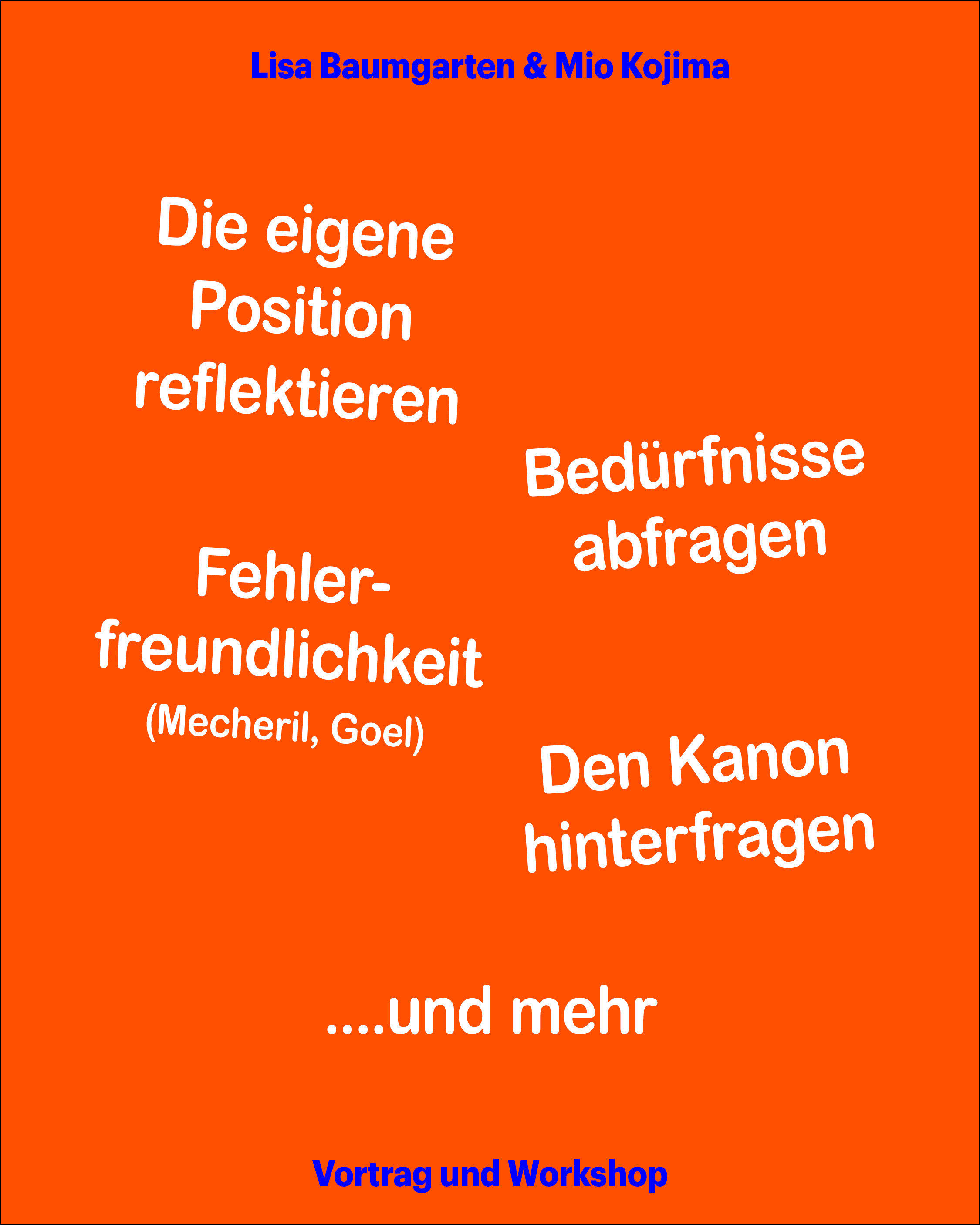

Recipes for connecting through critical design pedagogy
December, 2023Workshop as part of the exhibition Recipes for Connecting at A–Z Berlin
Sharing, connecting, making a salad, discussing power structures in art schools, zooming in and out and coming up with concrete strategies for a critical design pedagogy.



COUNTER IMAGES | GEGENBILDER
Design, Visual Identity, Campaign and Exhibition Graphics for Rautenstrauch-Joest-Museum, Cologne“Images tell stories. But who selects, archives, and presents them? How do they shape or distort memory? How do we "read" old photos today? And what counter-images can we create?
Dedicated to the power of the visual, the exhibition series Counter Images | Gegenbilder sheds light on the role photography plays when we write, mediate, and remember history.
Almost 200 years after its invention, photography has become a global medium. Never before have so many images been produced and distributed as today. In the beginning, however, it was closely linked to colonialism and ethnology. Western photographers took pictures of people, objects, and landscapes in colonies. In Europe, these images were, and in some cases still are, considered objective – just like the medium of photography itself. In fact, however, they were often used to classify people on the basis of external features in the name of a pseudo-scientific “racial science”. In this way, they contributed significantly to the stereotypes that are still effective today.
Counter Images | Gegenbilder takes a critical look at photographs that have come down to us, questioning their history and the supposed knowledge they carry. The RJM offers curators and artists a platform for counter-positions to those modes of representation. Using contemporary works, they reveal the power of images and enable new perspectives.
FIRST PAGES
What image do young photographers create of the world?In this edition of the exhibition series Counter Images Gegenbilder, international artists grant personal interior views of public and private places and events.
Photographs accompany our everyday perception and shape our image of people and places. The photographs in FIRST PAGES are highly topical. They counter stereotypical images through their immediacy. The works show our present from many perspectives. With this they also take a counter-position to the Historical Photo Collection of the RJM.
Over 40 students present their work here as photo books. The images are arranged and woven into a narrative. Almost all of the books on display are unique and fascinate with their different formats and forms.
We invite you to browse through the FIRST PAGES, to read and to question your own mental images.
This presentation is a collaboration with the universities of Hannover and Dortmund. The works were created between 2018 and 2022 as part of the national and international photo book classes.

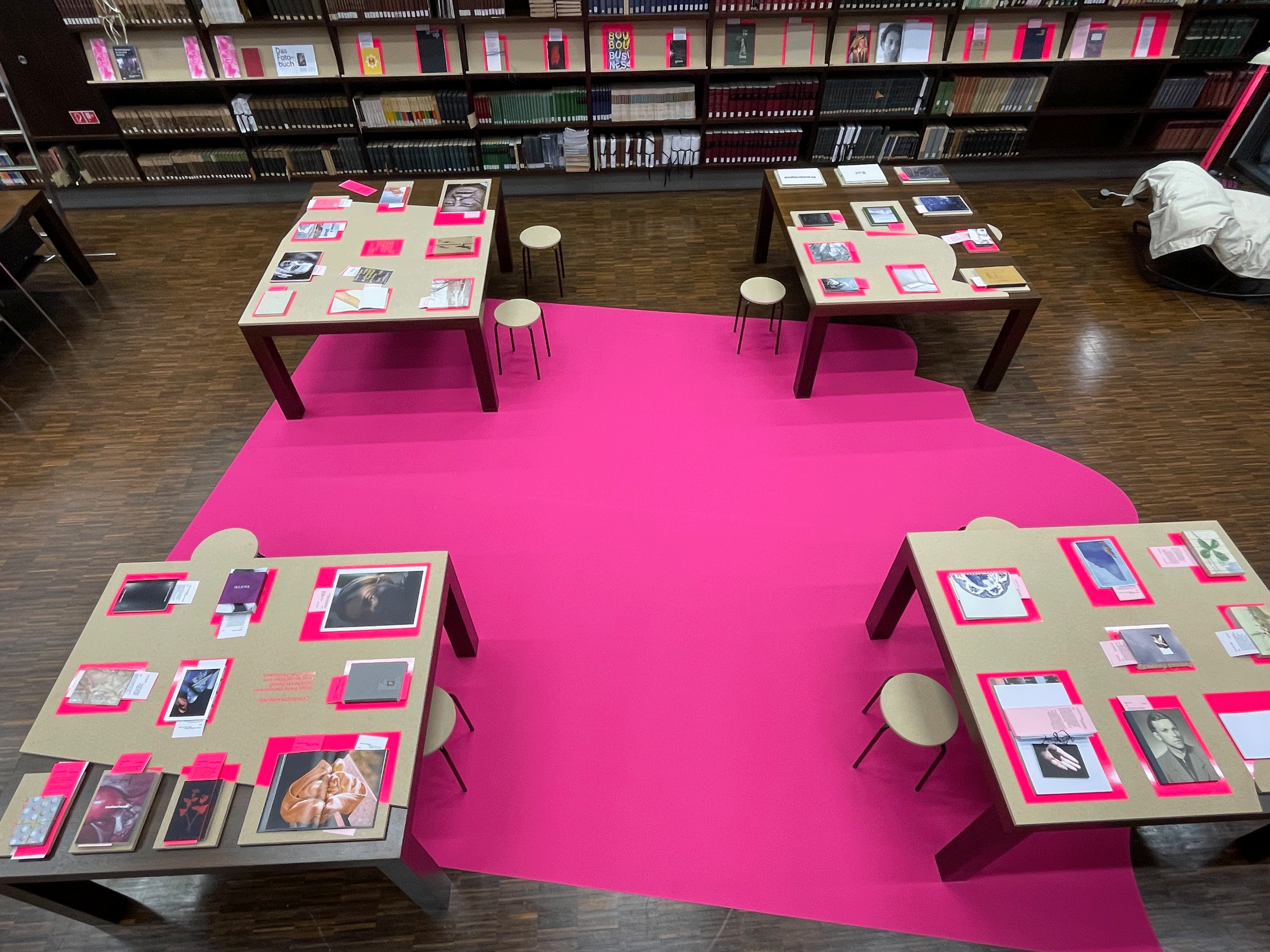
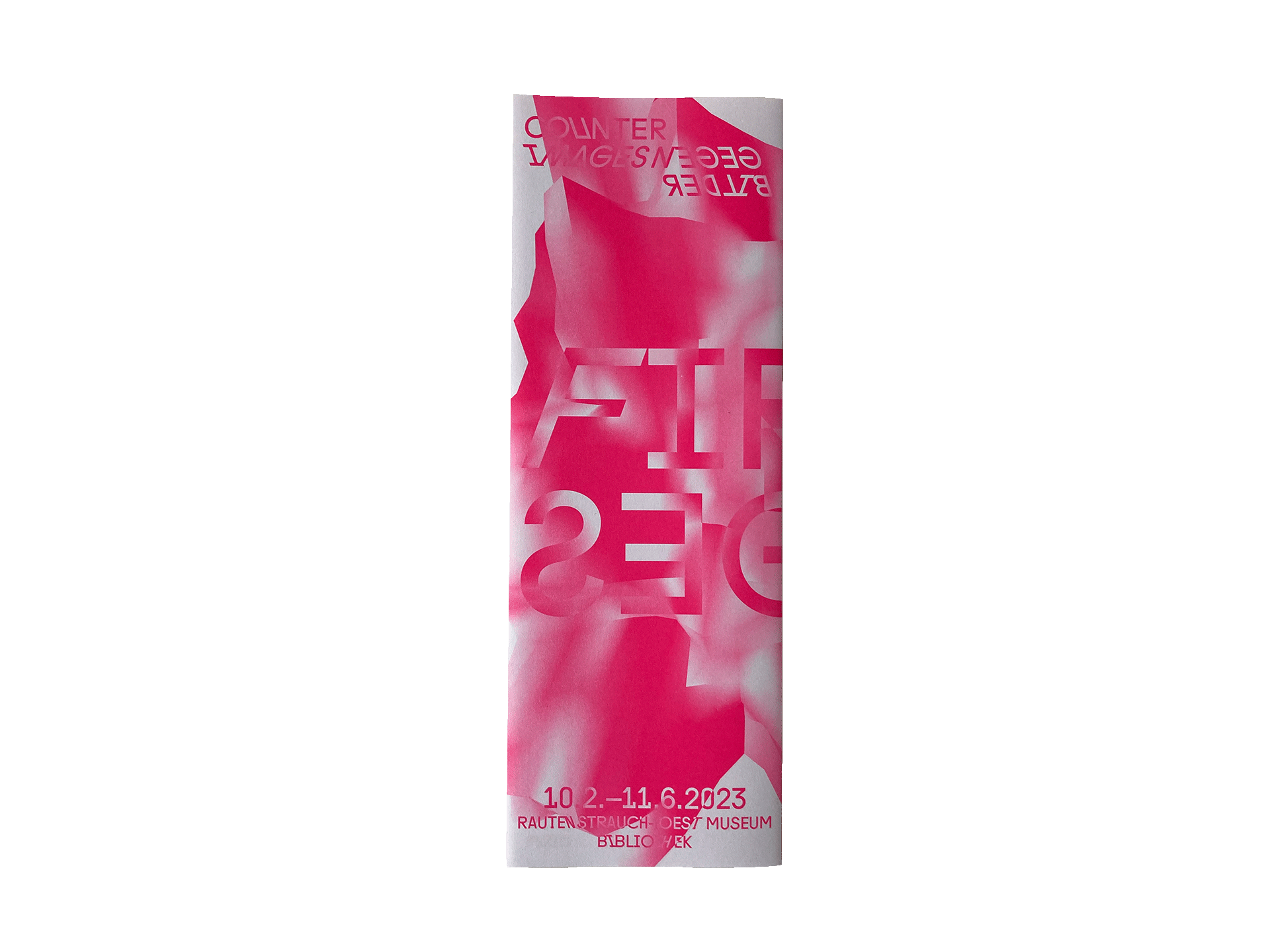

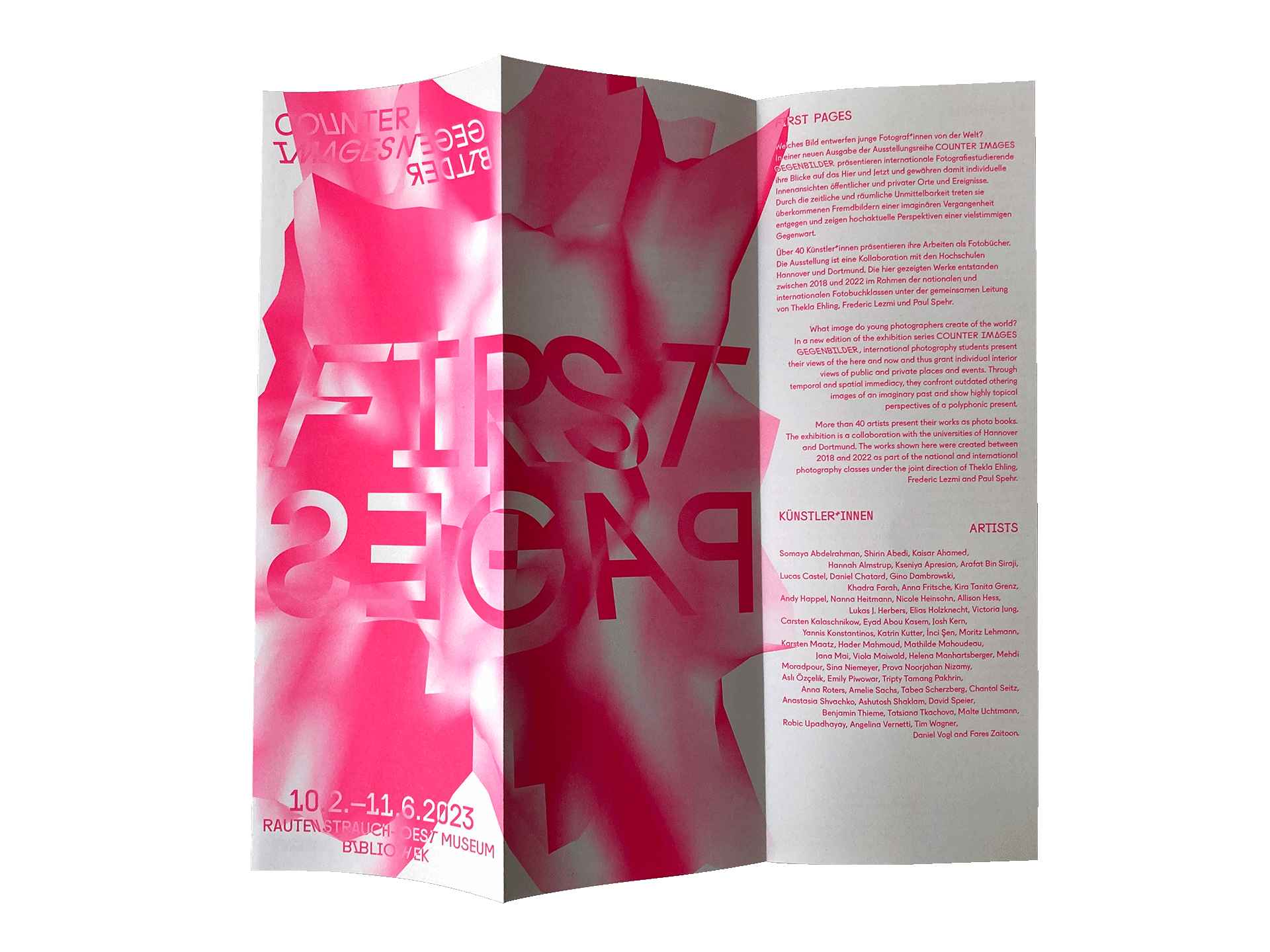

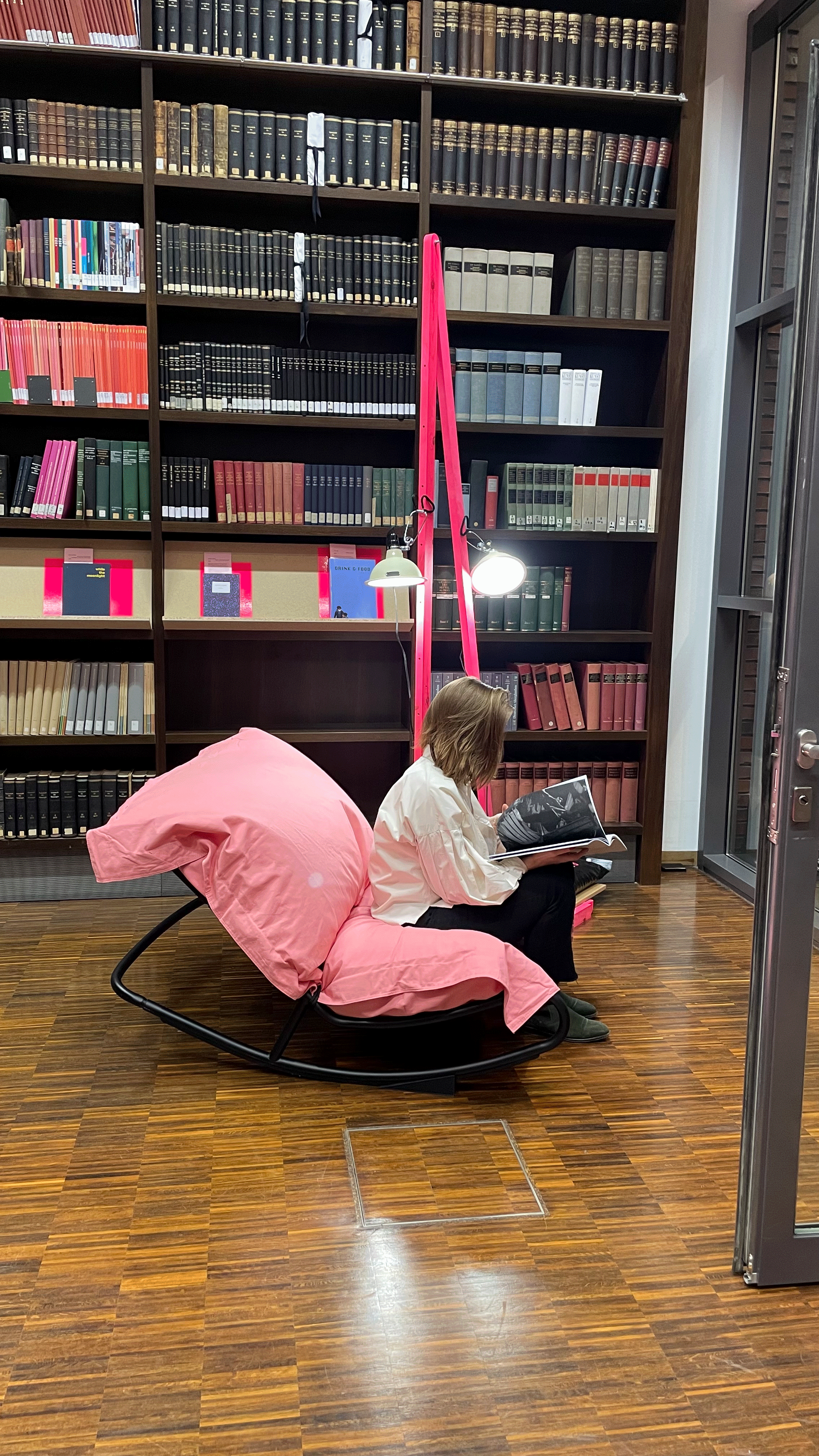
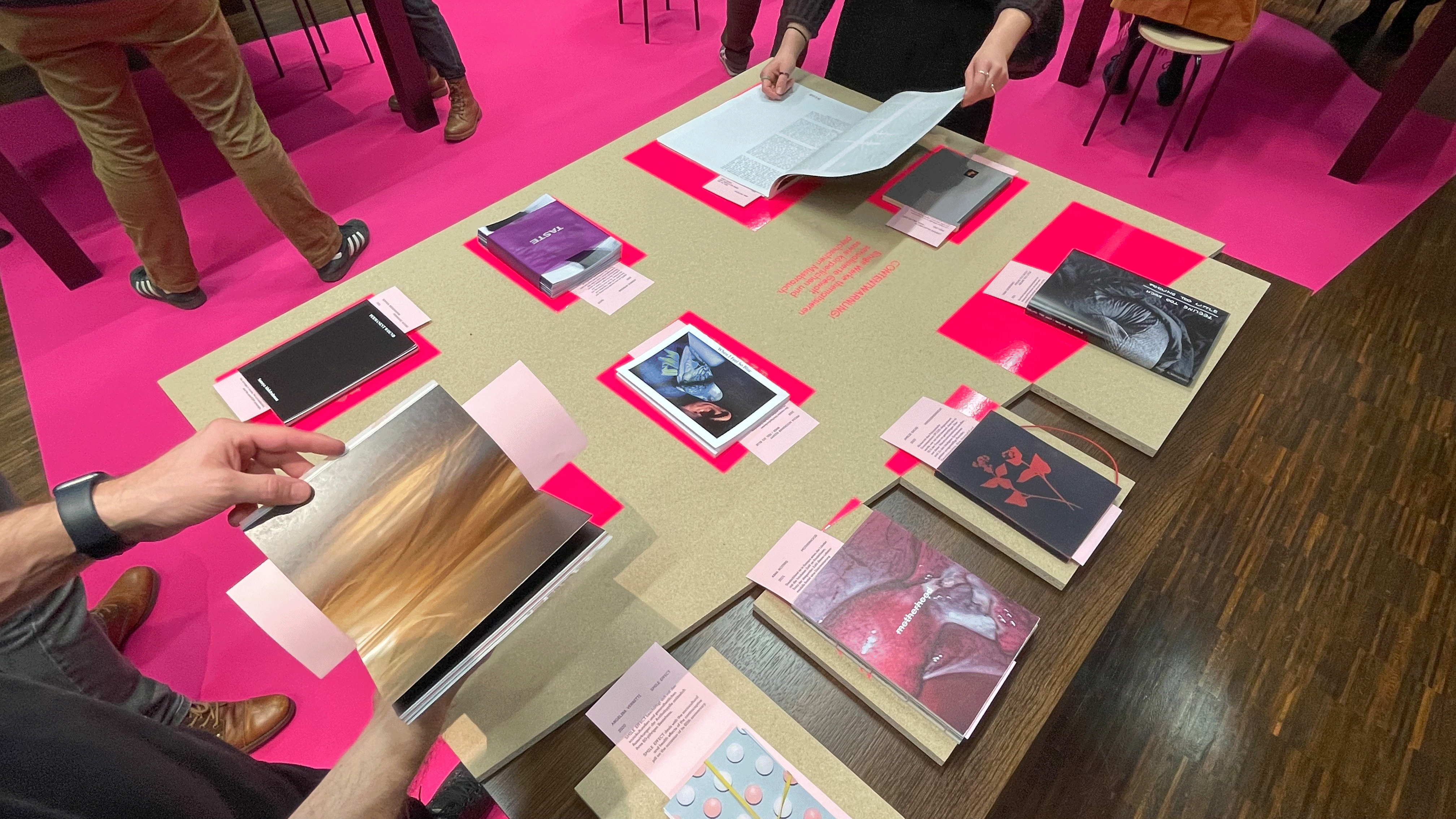
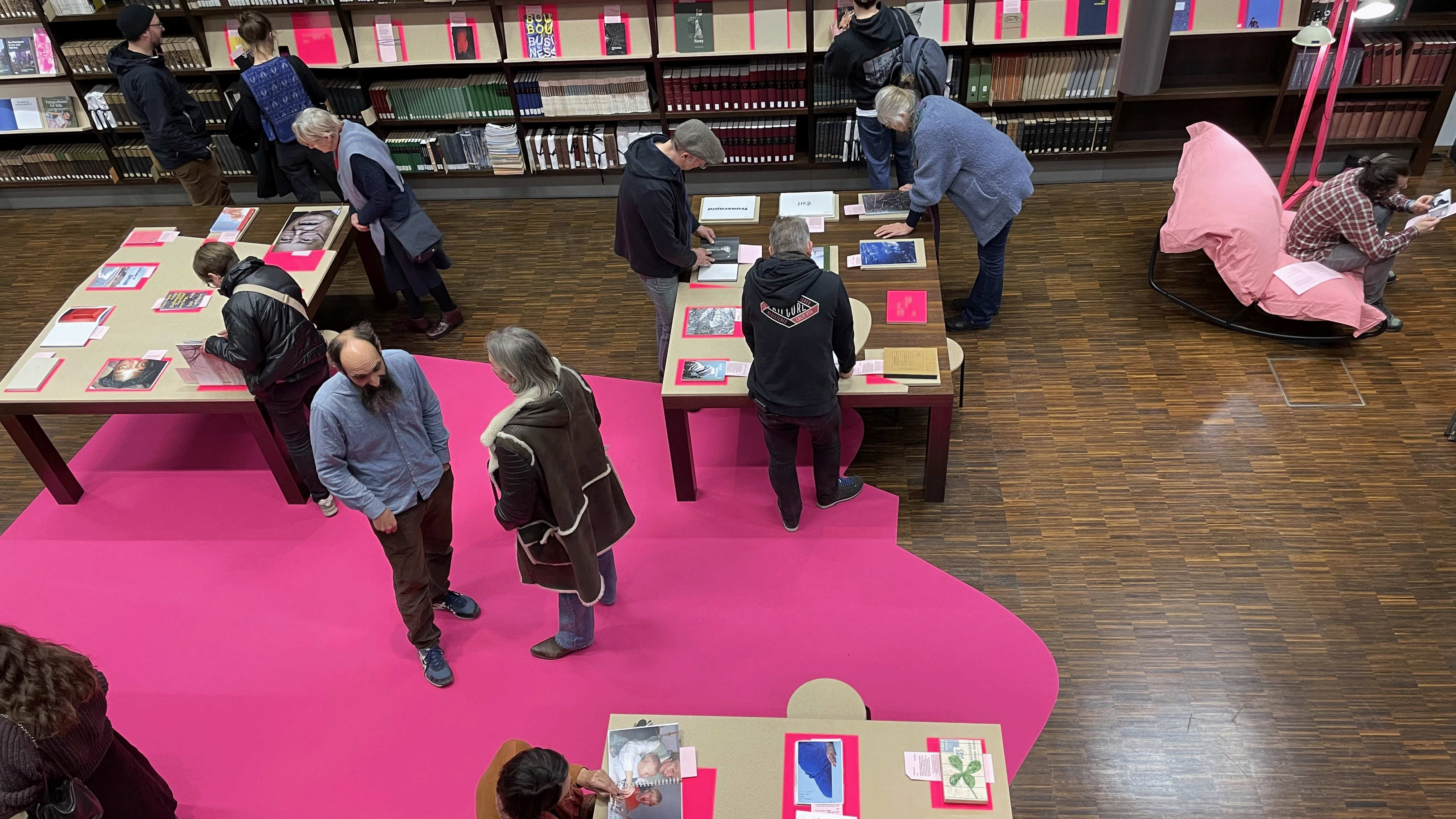
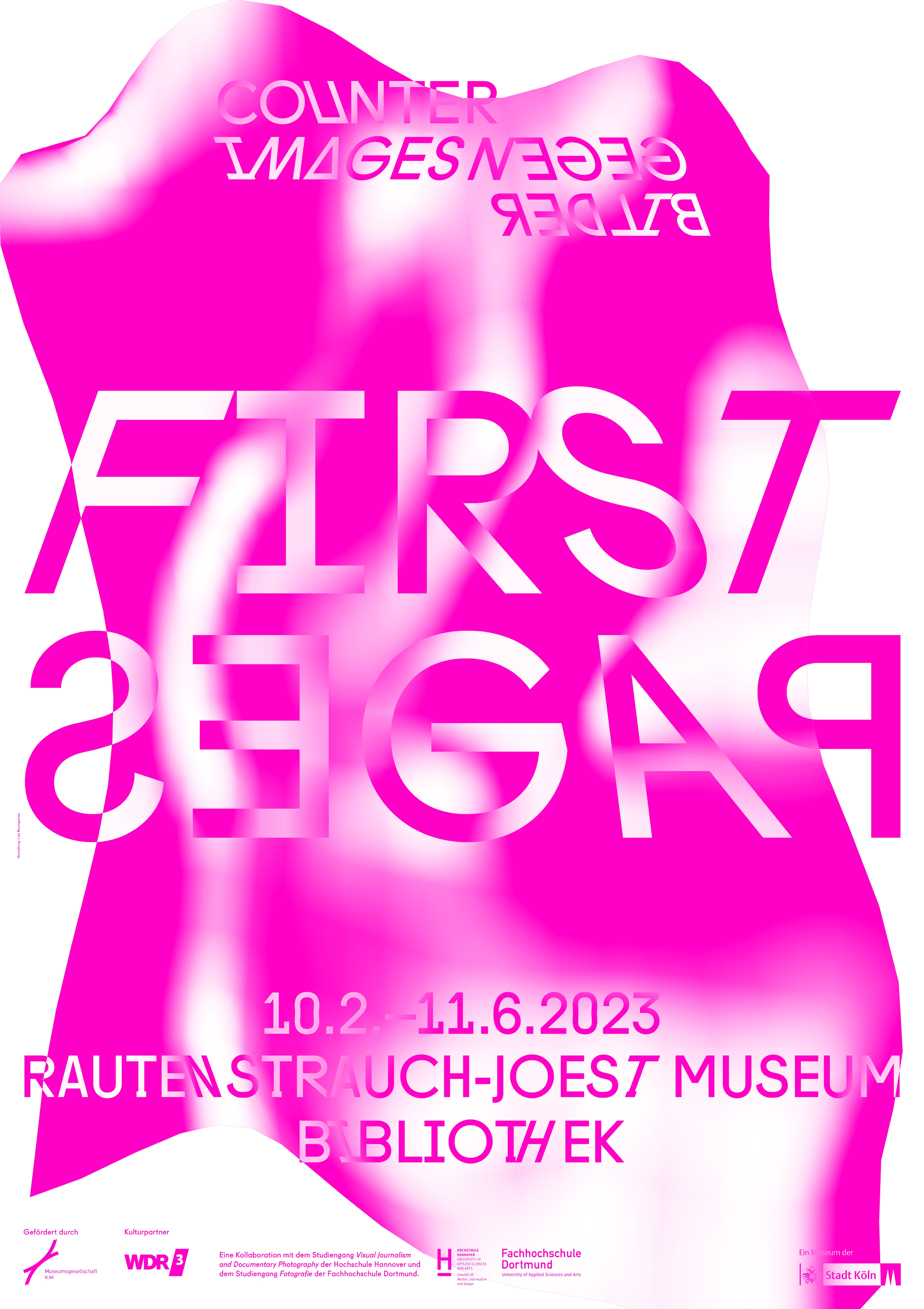
Artists
Somaya Abdelrahman, Shirin Abedi, Kaisar Ahamed, Hannah Almstrup, Kseniya Apresian, Arafat Bin Siraji, Lucas Castel, Daniel Chatard, Gino Dambrowski, Khardra Farah, Anna Fritsche, Kira Tanita Grenz, Andy Happel, Nanna Heitmann, Nicole Heinsohn, Allison Hess, Lukas J. Herbers, Elias Holzknecht, Victoria Jung, Carsten Kalaschnikow, Eyad Abou Kasem, Josh Kern, Yannis Konstantinos, Katrin Kutter, İnci Şen, Moritz Lehmann, Karsten Maatz, Hader Mahmoud, Mathilde Mahoudeau, Jana Mai, Viola Maiwald, Helena Manhartsberger, Mehdi Moradpour, Sina Niemeyer, Prova Noorjahan Nizamy, Aslı Özçelik, Emily Piwowar, Tripty Tamang Pakhrin, Anna Roters, Amelie Sachs, Tabea Scherzberg, Chantal Seitz, Anastasia Shvachko, Ashutosh Shaklam, David Speier, Benjamin Thieme, Tatsiana Tkachova, Malte Uchtmann, Robic Upadhayay, Angelina Vernetti, Tim Wagner, Daniel Vogl and Fares Zaitoon.
Project team
Thekla Ehling, Lucia Halder, Frederic Lezmi, Paul Spehr
Director
Nanette Snoep
Project Idea
Lucia Halder
Exhibition Design
Martha Schwindling (Exhibition Architecture)
Photos below: © Thekla Ehling
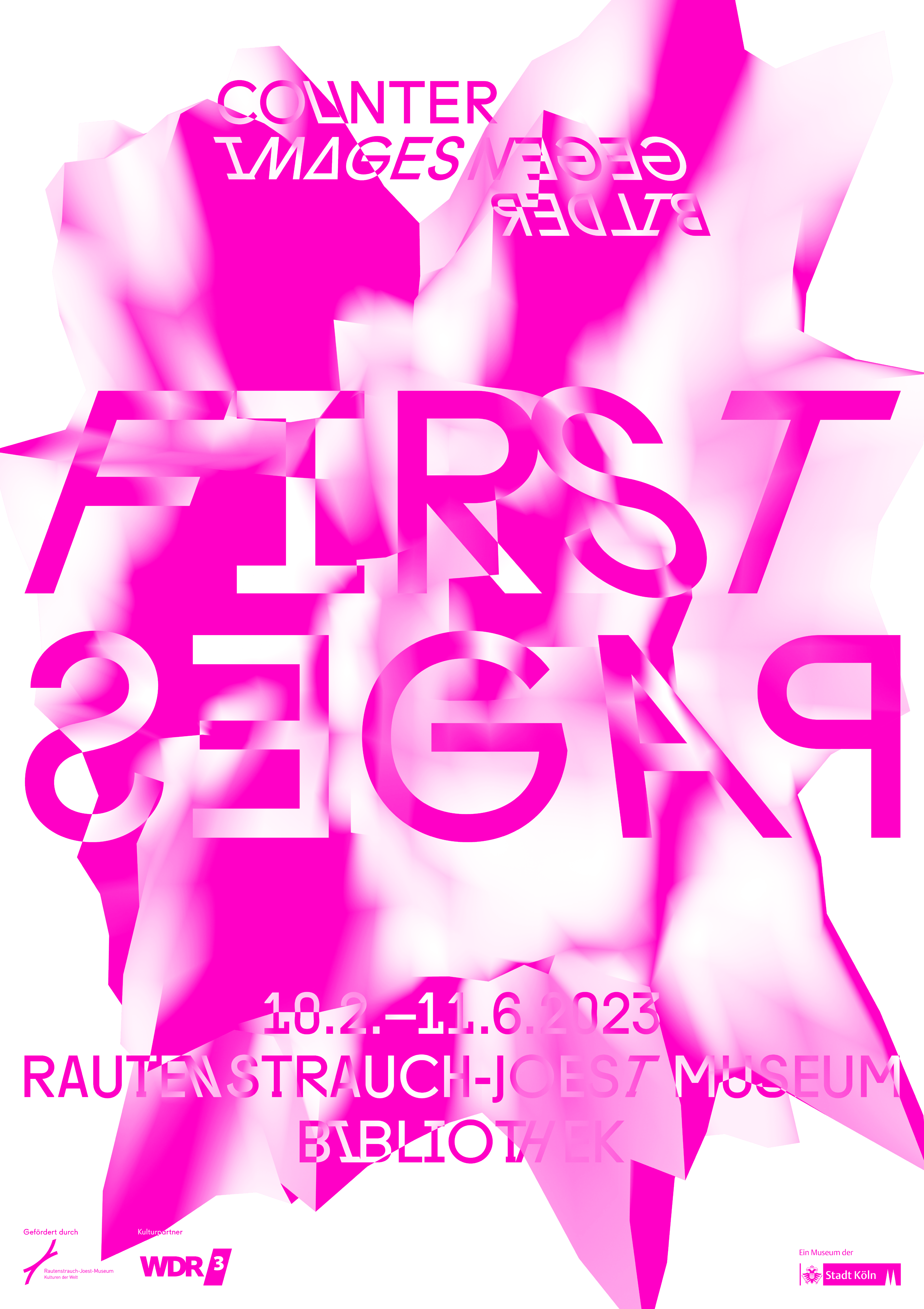
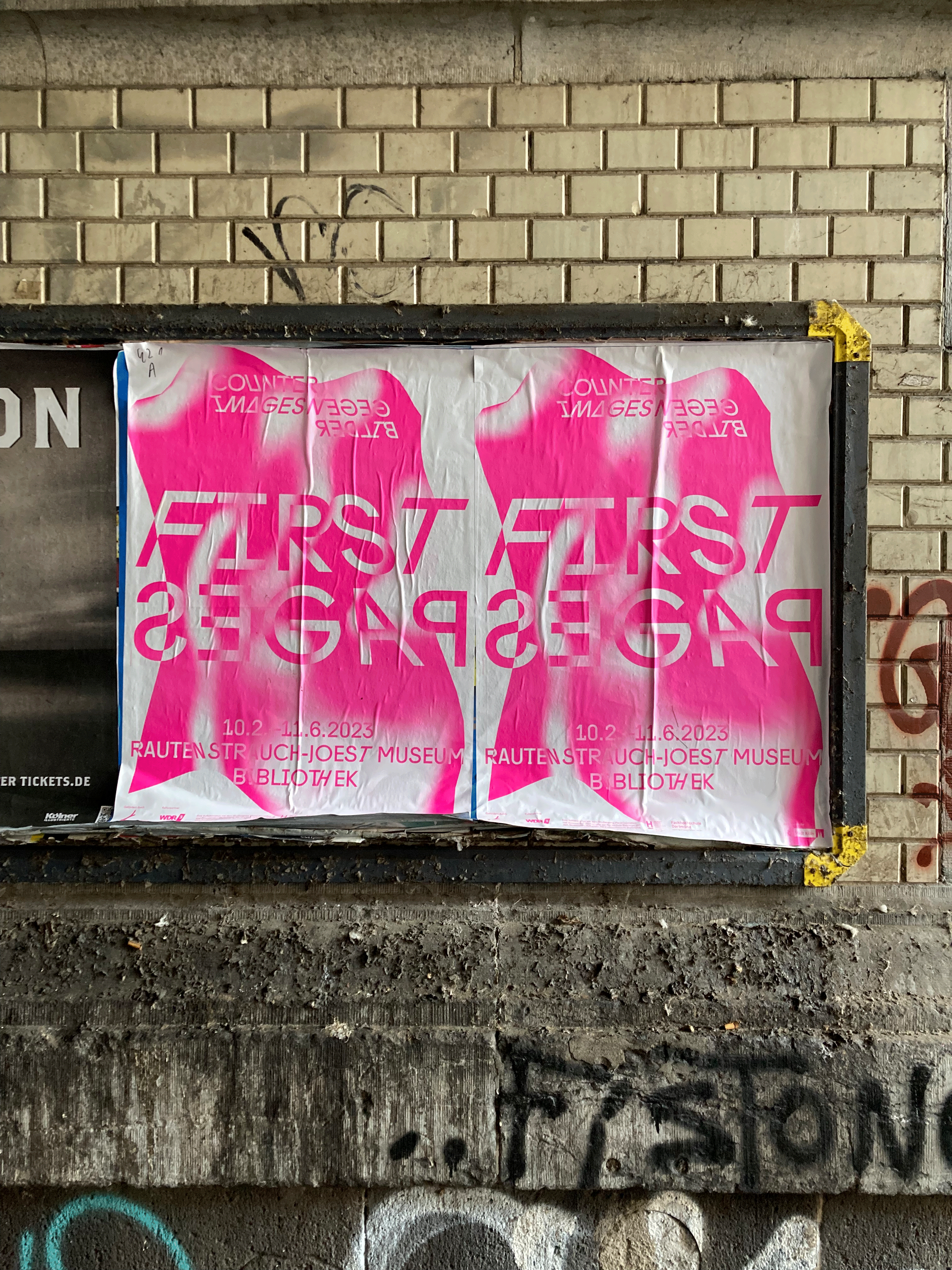



Recipes for Connecting
with the A–Z Collective, 23/11/2023–24/02/2024Recipes for Connecting is a project by the A—Z Collective, featuring “recipe” submissions from an international group of creatives, community builders, kids-at-heart, collectives, educators, and other cohorts who believe in the power of a simple idea to bring people closer together.
These “recipes” illustrate many different methods of connecting—offering practical social tools, humorous prompts, gentle reminders, alternative structures of communication, and scrumptious meals. Together they create a patchwork of insights into “connecting” on individual, interpersonal, human, non-human, and collective levels.
With Recipe contributions by:
Alex Jordan, Alina Frieske, Andrea Tinnes, Andreas Koch, Anja Lutz, Anne Christin Plate, April Gertler, Catrin Sonnabend, Claudia de la Torre, Clemens Gensch, Cindy Moorman, Daniel Pearce, Elaine Lopez, Eloise Hammermeister Smith, Emily Smith, Eunjung Kwak, Francesco Pini, Gregory Cowling, George Titheridge, Hanna Müller, Hounyeh Kim, Ivana Jecmenica, Josepha Conrad, Joshua Duttweiler, Judy Smith, Karen Ruge, Katherine May, Kristina Wedel, Lana Belton, Lan Kroeger, Laura Meseguer, Lisa Baumgarten, Maarten Janssen, Manuela Eichner, Marin Griffith, Mio Kojima, Molly Haig, Natalia Lombardo, Niklaus Troxler, Patrick Lacey, Paul Steinmann, Pia Steiner, Rachael Dunstan, Radna Rumping, Ramon Tejada, Sarah Boris, Sevinç Lenglachner, Siri Lee Lindskrog/Formal Setting, Silvia Sfligiotti, Sofia Harley, Stephanie Marie Cedeño, Susan Ploetz and Tulah Stanford.
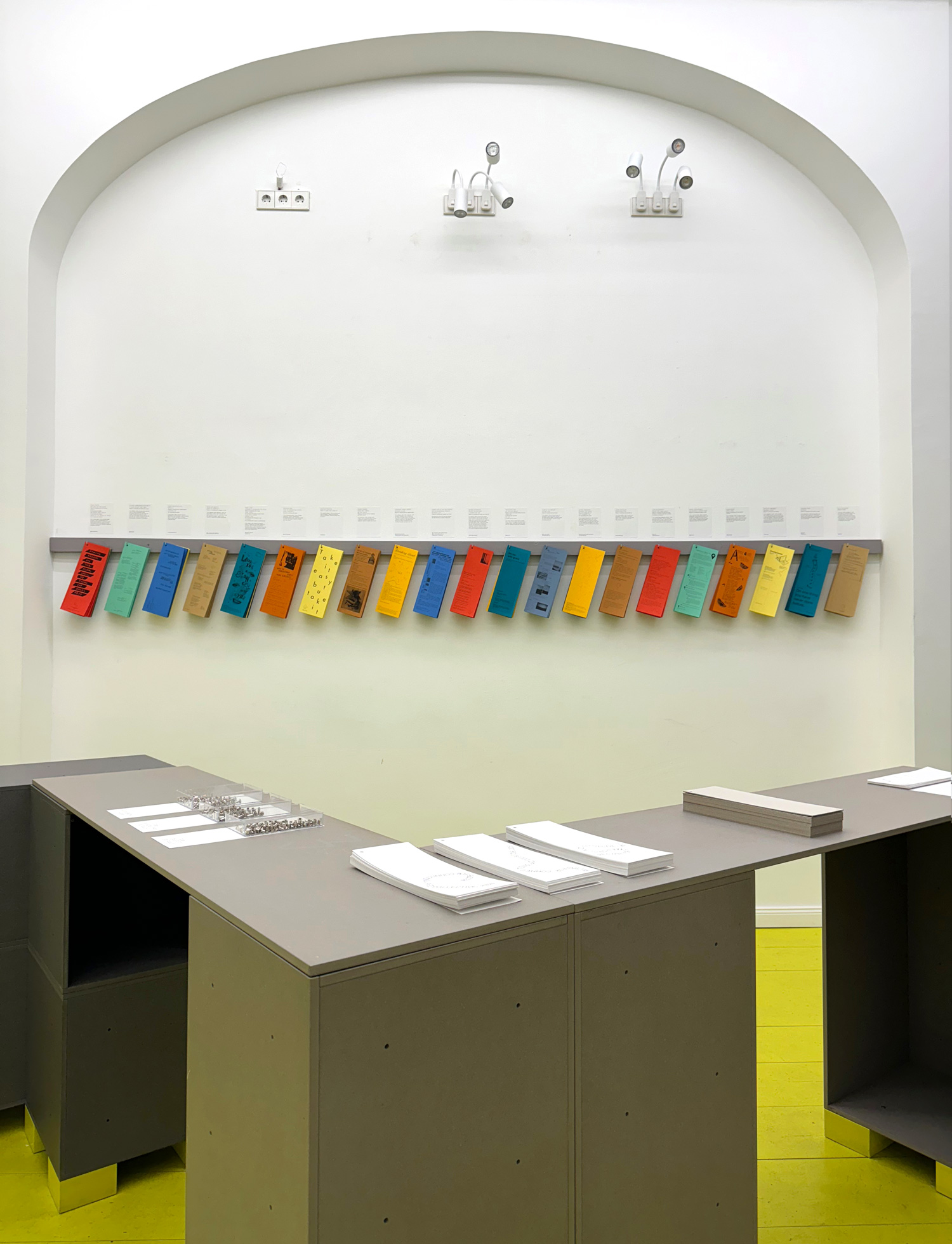

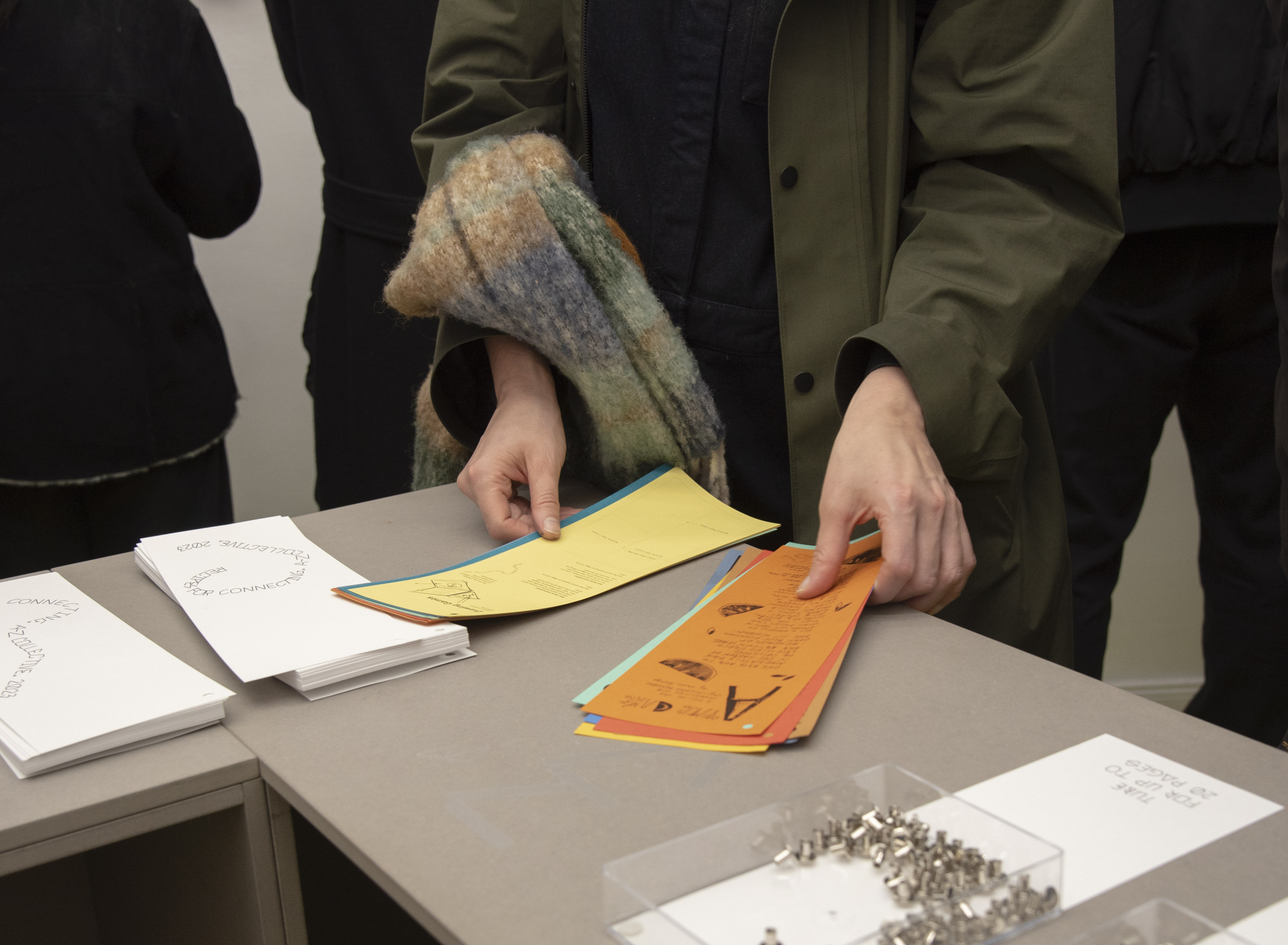
Kurimanzutto Art Gallery as part of Index Art Book Fair in Mexico City, 18–21/1/2024
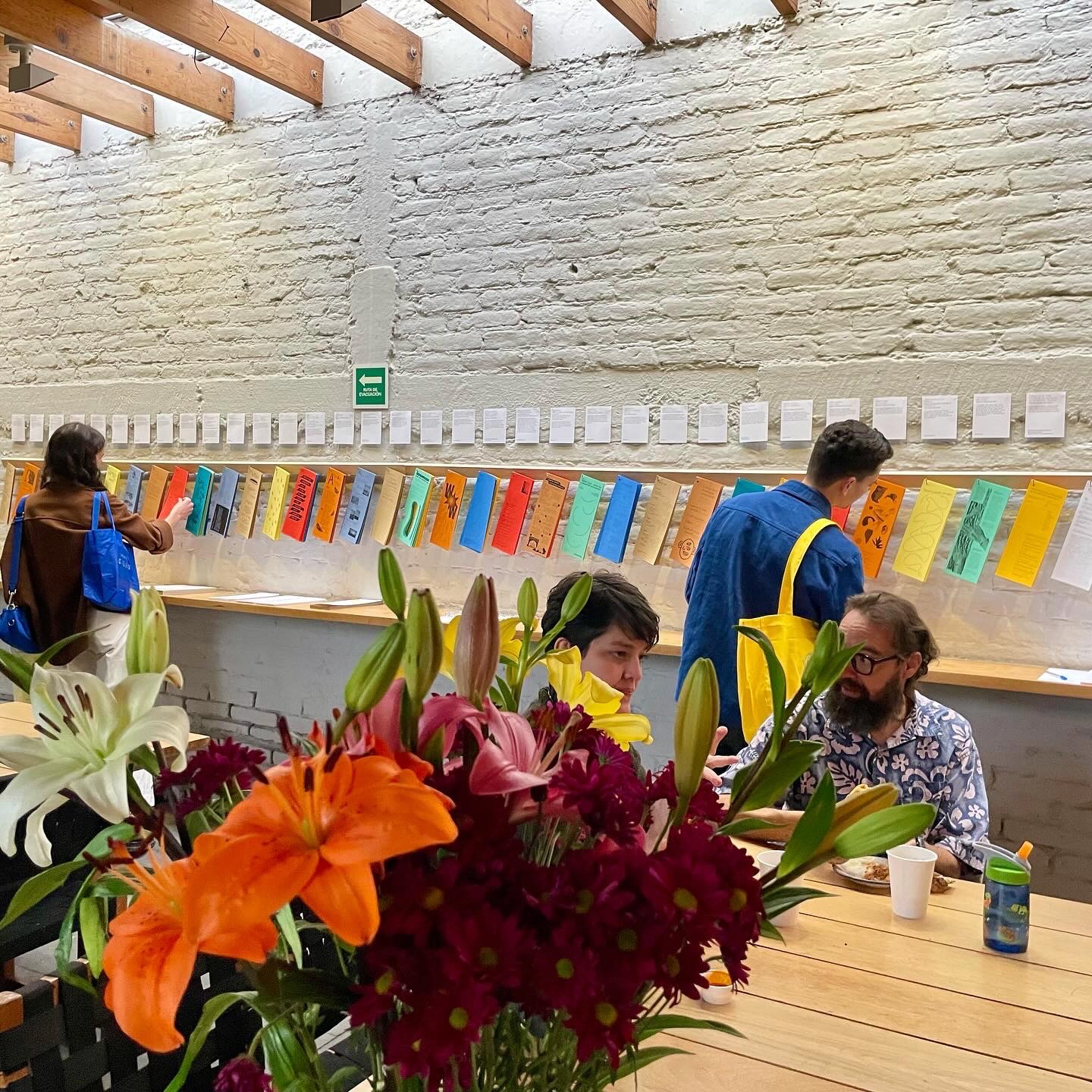
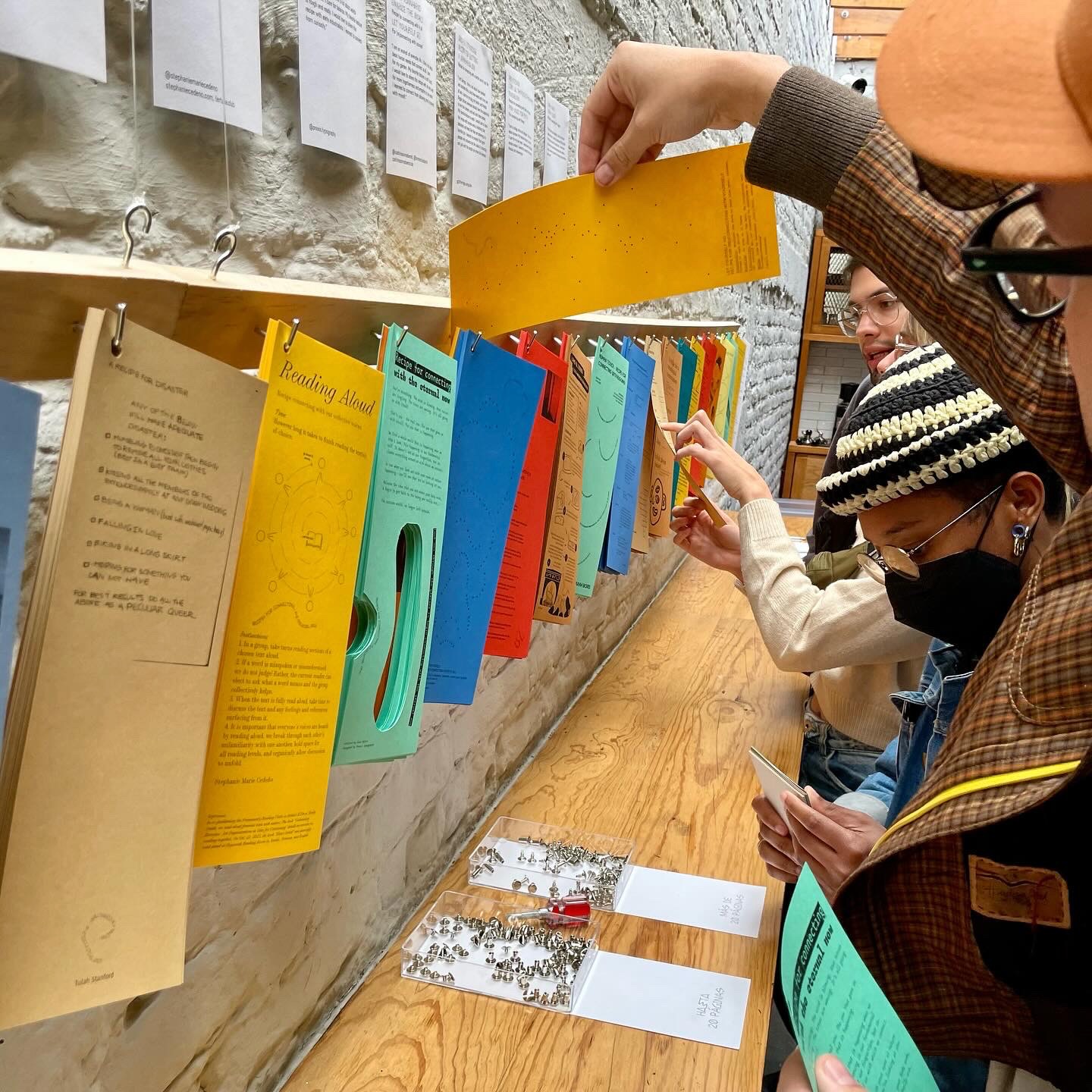
Events:
12/11/2023
The School for Somatic Design Practices, hosted by Emma Hoette, Sara Kaaman, Susan Sentler, Silvia Sfligiotti, Emily Smith, Vivien Tauchmann, Micaela Terk
26/11/2023 Recipes for Connecting through Design Pedagogy, hosted by Lisa Baumgarten
18–21/1/2024
at Kurimanzutto Art Gallery as part of Index Art Book Fair in Mexico City
Recipes for Connecting is printed on different colours of SURBALIN glatt 115 g/qm and 300 g/qm, kindly provided by peyer cover. The cardboard was kindly provided by Druckerei zu Altenburg.
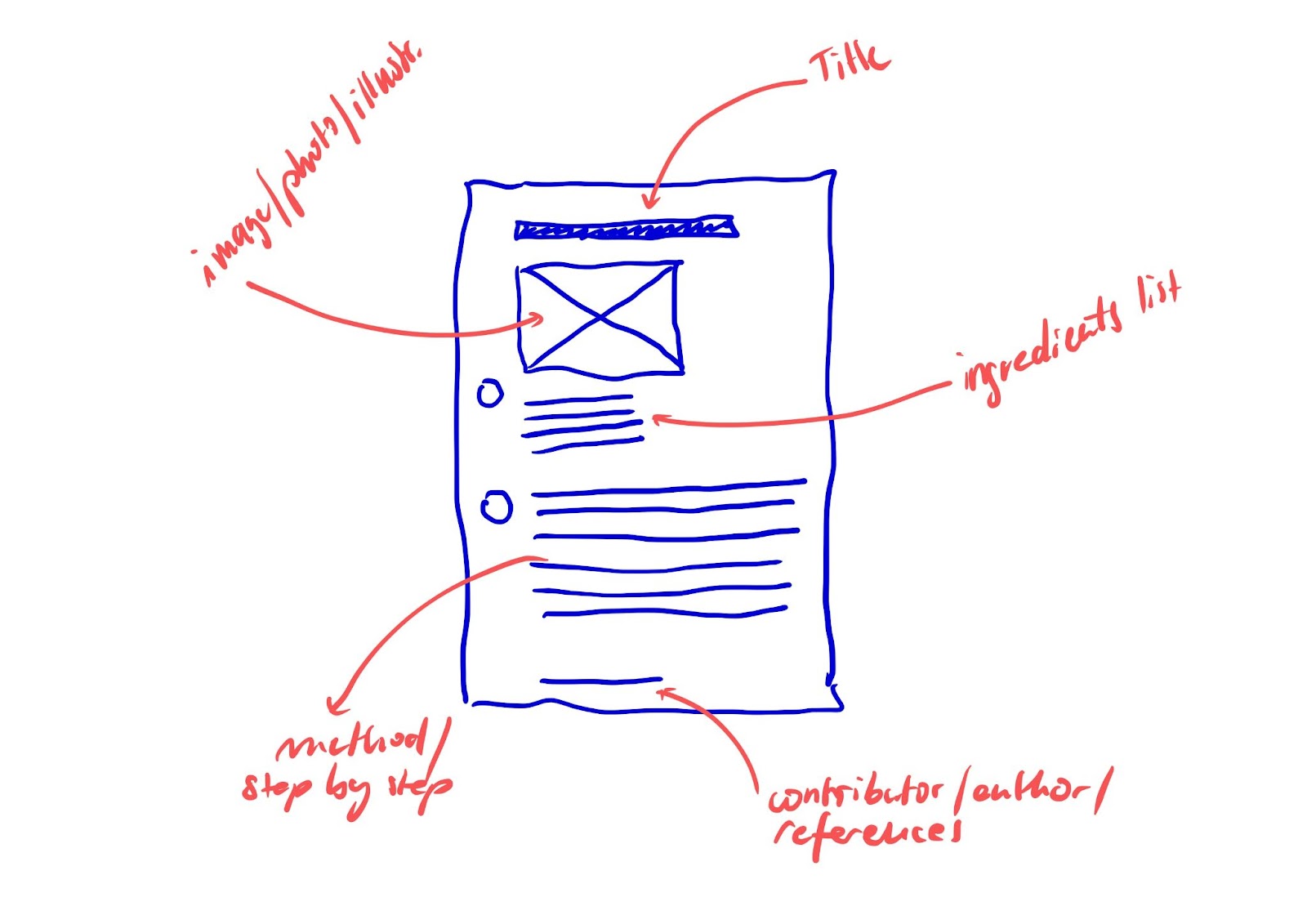
A collective project by the A–Z Collective:
Emily Smith, Anja Lutz, Eunjung Kwak, Francesco Pini,
Gregory Cowling, Ioana Ferariu, Kelly Diepenbrock, Lisa Baumgarten,
Pia Steiner, Sofia Harley, Alina Frieske, Manuela Dos Santos
Concept and idea: Lisa Baumgarten
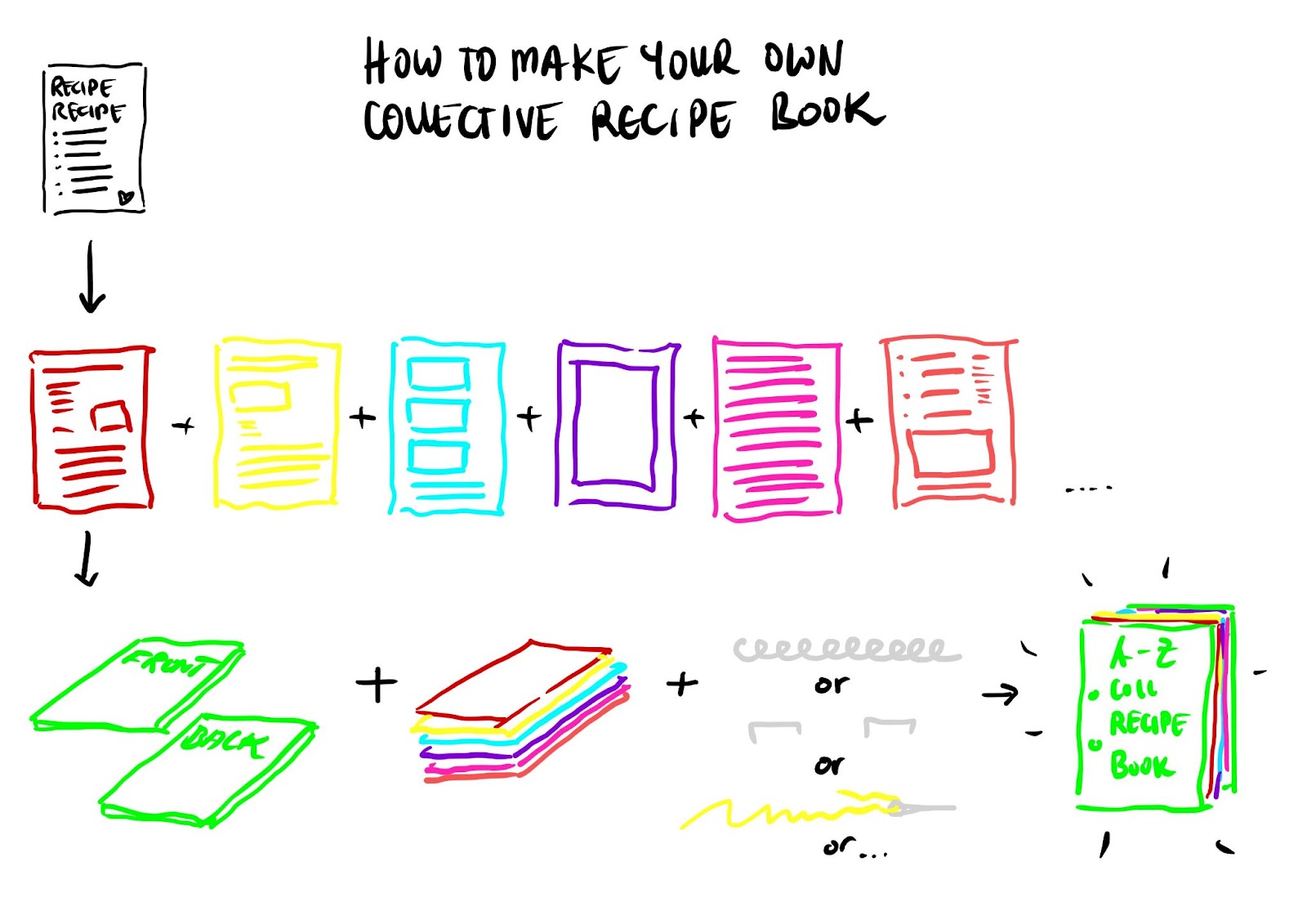
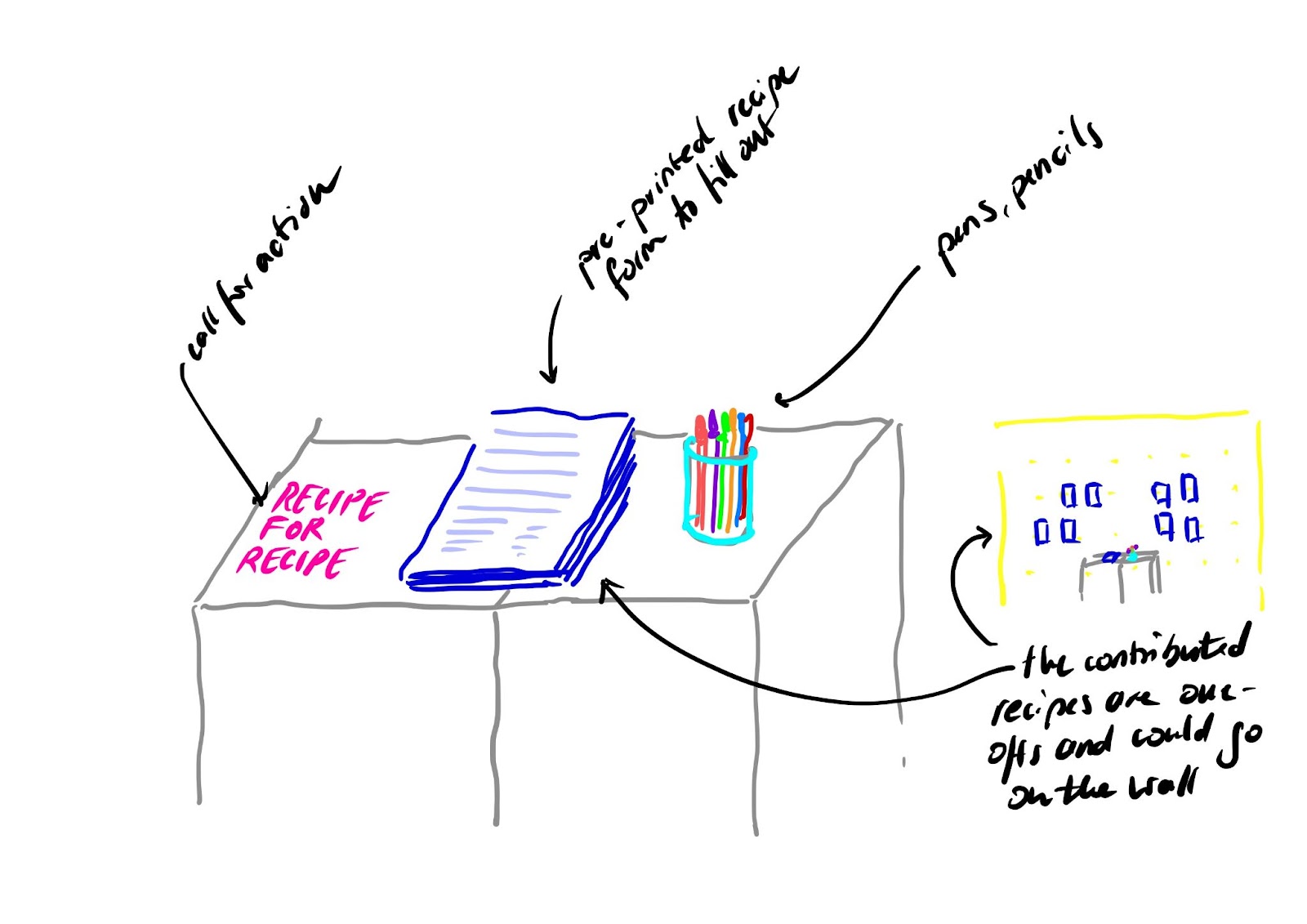
The A—Z Collective took shape in early 2023 with the purpose of
exploring what we as designers might learn from a more conscious way
of working as a collaborative whole. We have since learned through
our various projects, including the Super Collective Market (which ran in
this space from July-Sept 2023), how an experimental approach
to graphic design can provide new ways of practicing, playing, connecting,
communicating, and depending on one another.
![]()
![]()
![]()
![]()
![]()
12/11/2023
The School for Somatic Design Practices, hosted by Emma Hoette, Sara Kaaman, Susan Sentler, Silvia Sfligiotti, Emily Smith, Vivien Tauchmann, Micaela Terk
26/11/2023 Recipes for Connecting through Design Pedagogy, hosted by Lisa Baumgarten
18–21/1/2024
at Kurimanzutto Art Gallery as part of Index Art Book Fair in Mexico City
Recipes for Connecting is printed on different colours of SURBALIN glatt 115 g/qm and 300 g/qm, kindly provided by peyer cover. The cardboard was kindly provided by Druckerei zu Altenburg.
A collective project by the A–Z Collective:
Emily Smith, Anja Lutz, Eunjung Kwak, Francesco Pini,
Gregory Cowling, Ioana Ferariu, Kelly Diepenbrock, Lisa Baumgarten,
Pia Steiner, Sofia Harley, Alina Frieske, Manuela Dos Santos
Concept and idea: Lisa Baumgarten
The A—Z Collective took shape in early 2023 with the purpose of
exploring what we as designers might learn from a more conscious way
of working as a collaborative whole. We have since learned through
our various projects, including the Super Collective Market (which ran in
this space from July-Sept 2023), how an experimental approach
to graphic design can provide new ways of practicing, playing, connecting,
communicating, and depending on one another.
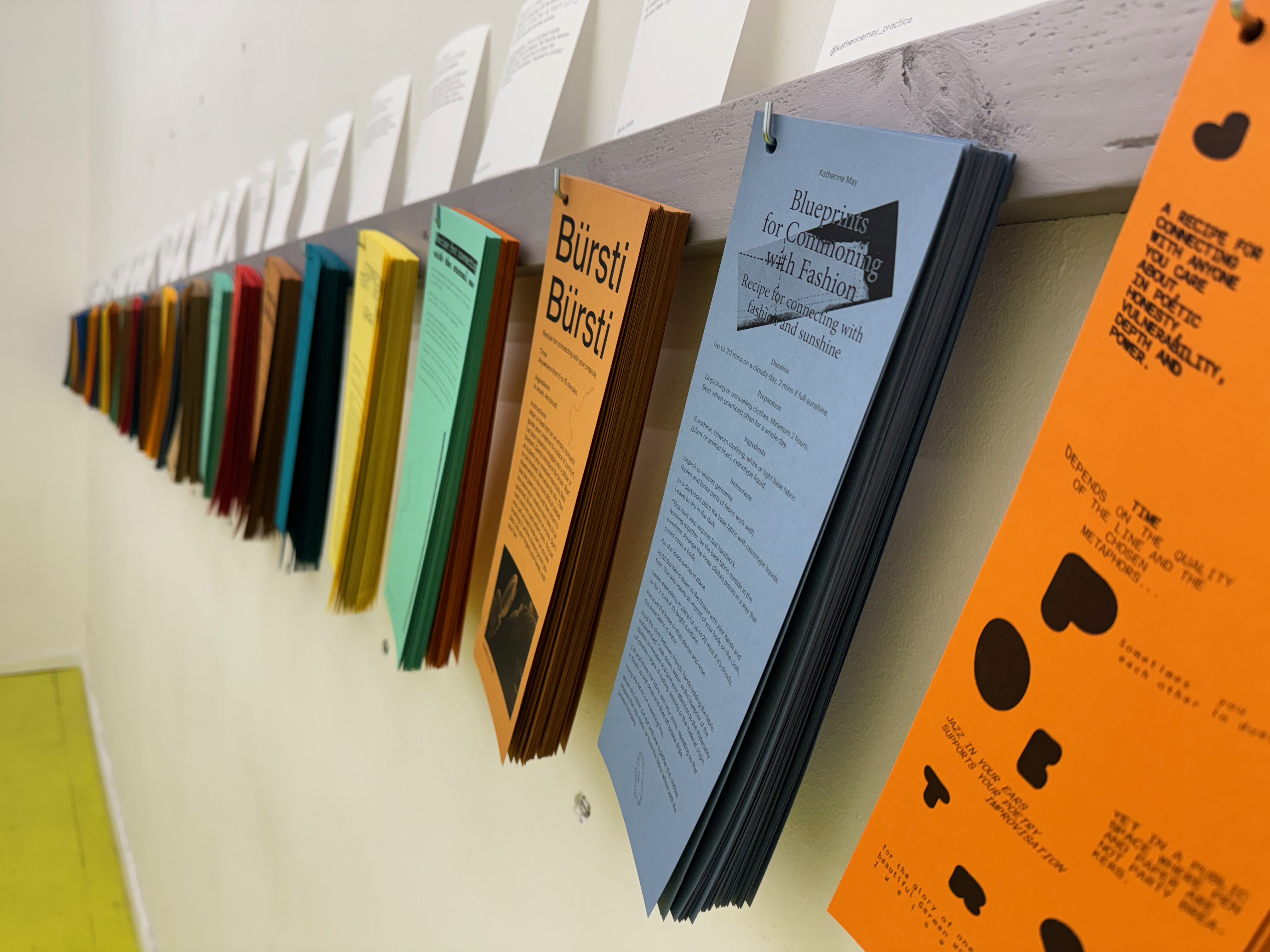


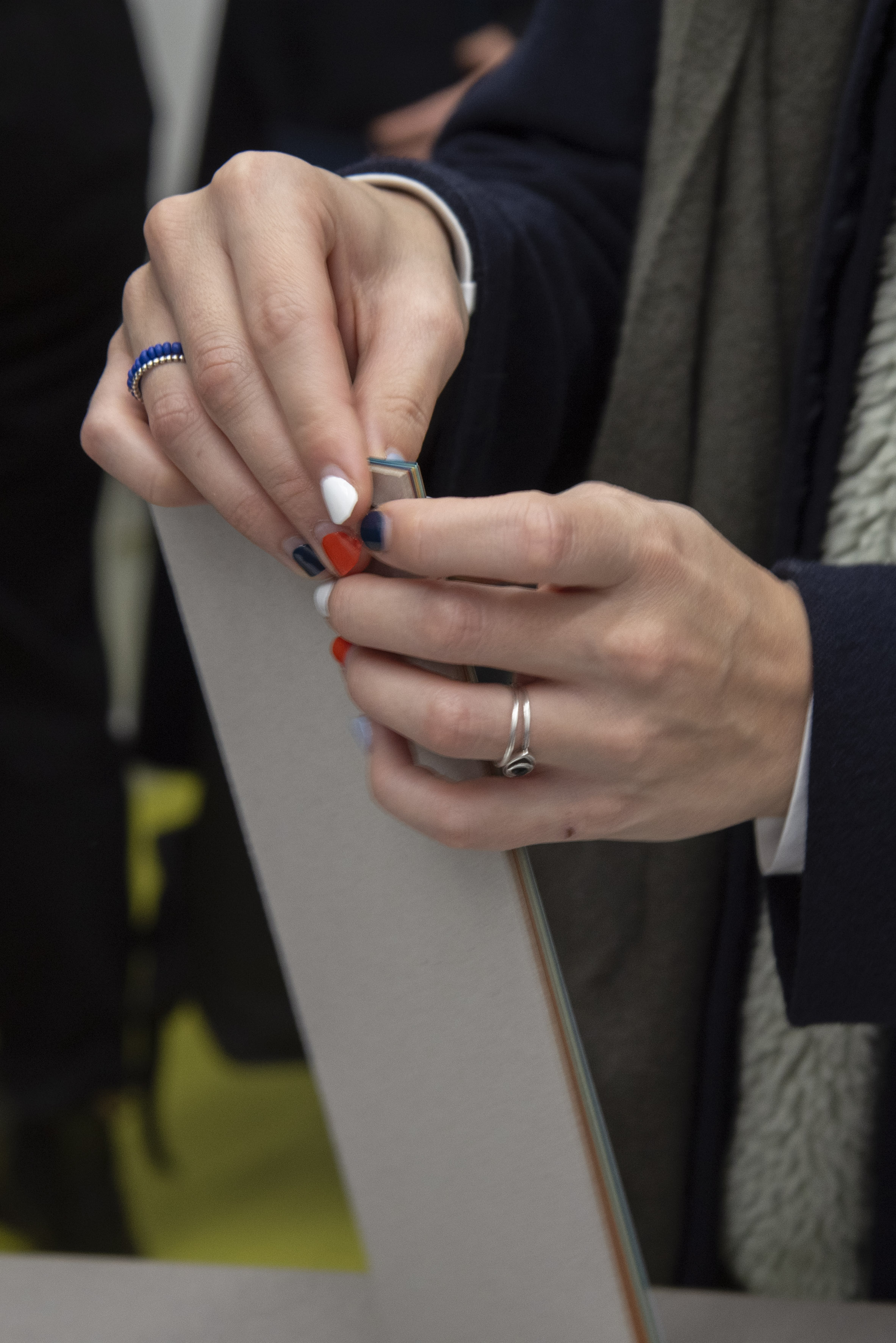

Mapping the Collection
20. Juni – 23. August 2020Museum Ludwig, Cologne
“The exhibition Mapping the Collection takes a new look at two influential decades in American (art) history: the 1960s and 1970s. The exhibition presents a selection of artworks from the Museum Ludwig’s collection by female, queer, and indigenous artists as well as artists of color who are not represented in the collection, as an impetus for a broader reception of American art. The political and social events and developments of these two decades form the background against which our Western European conception and reception of American art history is critically questioned.”
Visual identity concept, Print, digital, exhibition space
Key visual development, Campaign: Paul Steinmann & Lisa Baumgarten
Title-Font: Impact Nieuw 2019 by Jungmyung Lee
Animation: Paul Steinmann
Curated by Janice Mitchell



Excerpt from the concept presentation; key visual development
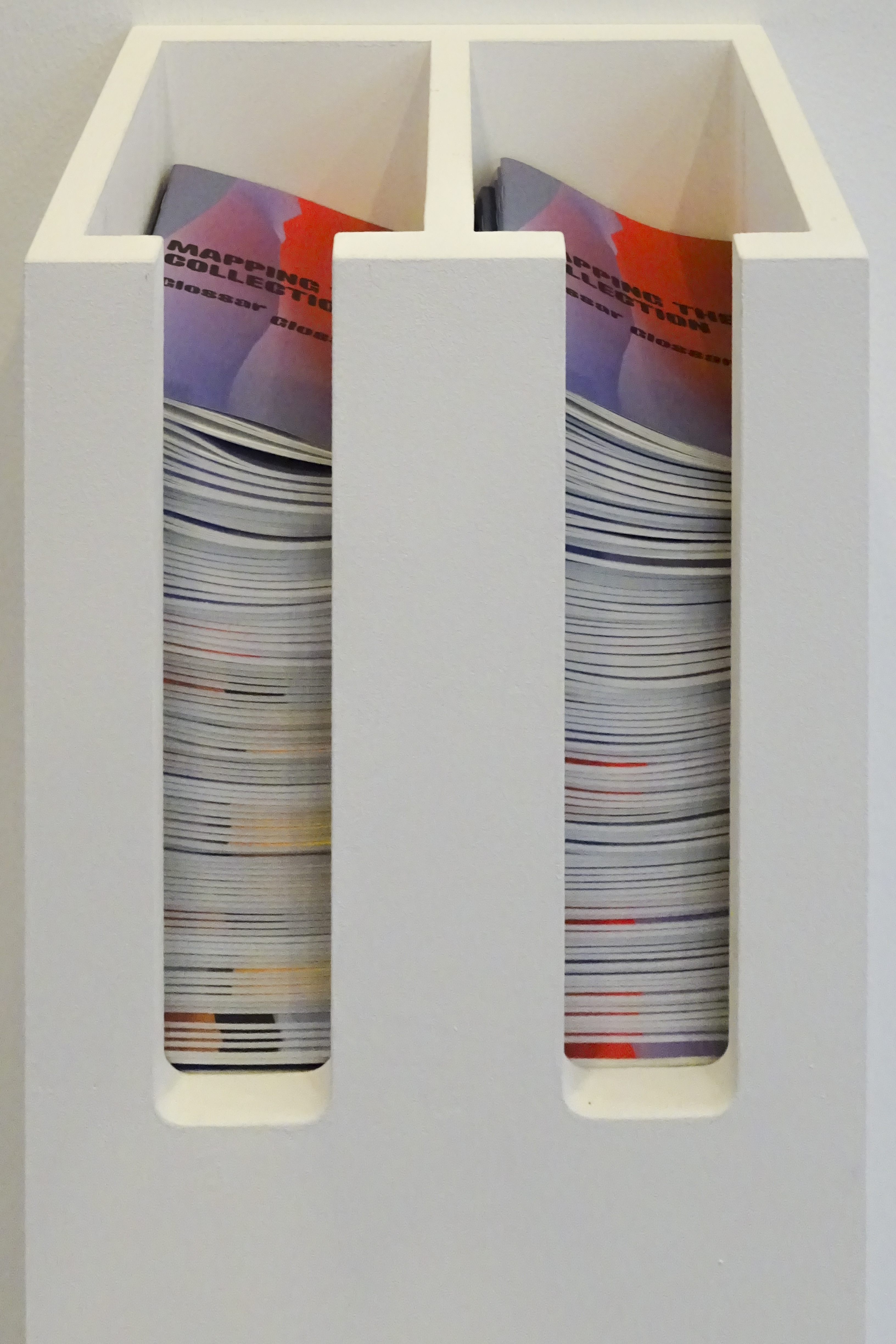
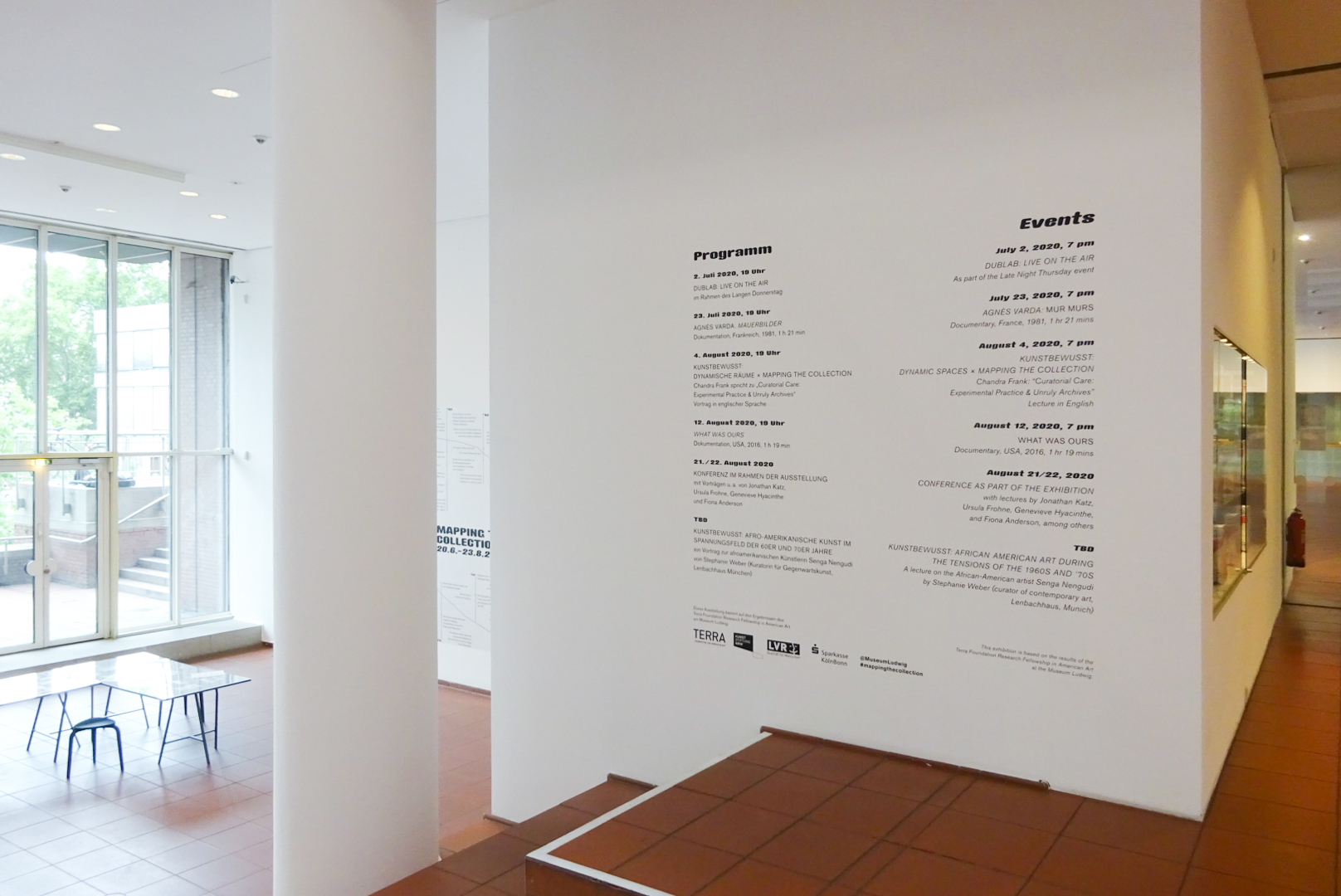


Bi-lingual exhibition texts

Exhibition campaign poster with key visual

Exhibition campaign poster

Timeline at the entrance hall of Museum Ludwig

Animated Keyvisual displayed in JCDecaux lightboxes

Exhibition title, view from Heinrich-Böll-Platz
Mapping The Collection merch, screenprinted totebag
